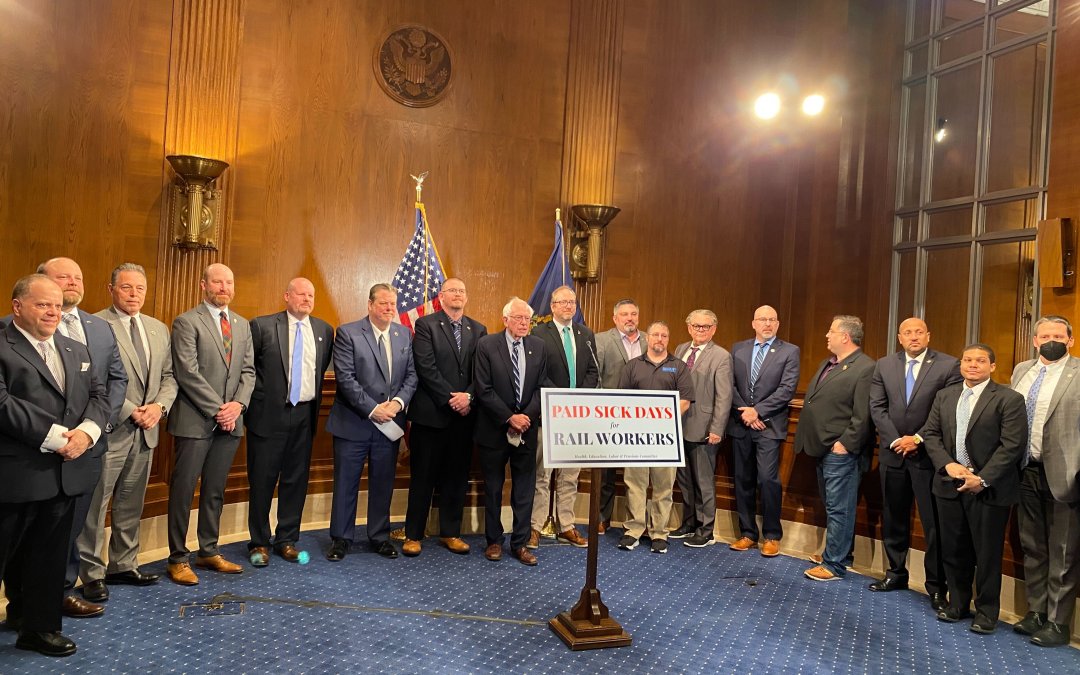WASHINGTON – Sens. Bernie Sanders (I-Vt.) and Mike Braun (R-Ind.) on Thursday demanded that railroad companies guarantee seven days of paid sick leave for their employees — something Sanders had on his agenda last Congress without much success.
“We are here today to send a very strong message to the CEOs in the rail industry – and that is the American people are sick and tired of the type of corporate greed we are seeing in that industry,” Sanders said during a press conference Thursday inside the Health, Education, Labor and Pensions Committee room.
Late last year, Congress voted to intervene to avert a railroad strike amid worries of a supply chain disruption. The congressional intervention binds the unions and railroads to a contract brokered by the Biden administration in September 2022 that had some days off but was very restrictive. Several unions had rejected the contract because it did not include paid sick leave.
Several union leaders joined the two senators in demanding this agreement from their companies.
Doug Vanderjagt, vice president of East Brotherhood of Railroad Signalmen shared the experiences of rail workers across America, which include grueling schedules including working on-call at all times with few personal days. When sick, workers must either use those leisure days, take unpaid time off and risk future disciplinary consequences, or go to work sick.
“What they are asking for is not a rogue idea, they are asking for quality of life benefits that they have earned hundreds of times over,” Vanderjagt said.
Sanders noted the industry made $22 billion this year in profits and spent $20 billion on stock buybacks and dividends.
“In my view if the industry can afford to spend over $20 billion in stock buybacks and hand out huge dividends to their wealthy shareholders, they can afford to provide rail workers with at least seven paid sick days,” Sanders said.
Two days ago, two unions were able to strike a deal with CSX, a major rail company, giving 5,000 workers 4 days of paid sick leave.
Braun said issues like this should be “common sense” that the industry and unions decide itself through bargaining.
“It looks like the industry may get this worked out and that’s ideally the way it should be done,” Braun said. “Collective bargaining is there for that reason,”
Sanders, however, is ready to take the issue to the Capitol yet again.
In November, the House passed a proposal championed by Sanders to guarantee paid sick days but the bill was filibustered and ultimately failed in the Senate. The bill had the support of six Republicans including Braun.
“I have news for executives in the rail industry, if they think those of us in Congress who voted for seven days of paid sick days for workers are going to forget about this issue,” Sanders said.
Sanders added that if the companies don’t make an agreement with unions to provide additional sick days, he plans to hold a Senate hearing as chairman of the Health, Education, Labor and Pensions Committee to investigate.


